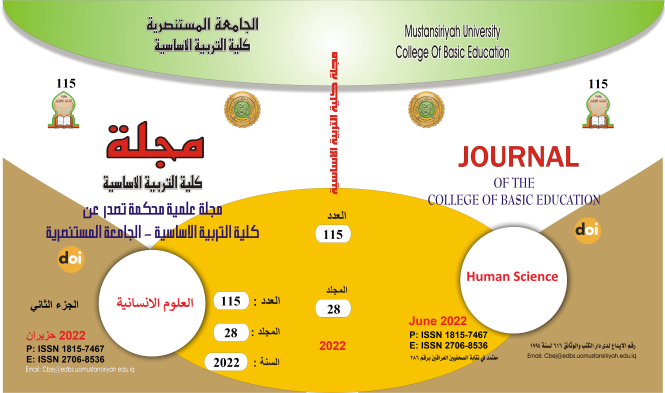The effect of the strategies of grouping and filtering ideas on the expressive performance of first-grade intermediate students
Main Article Content
Abstract
The current research aims to know “the effect of the two strategies of collection and filtering of ideas on the reading comprehension of first-grade intermediate students.” The researcher followed the experimental research method and chose an experimental design with partial control. The researcher chose Division (B) to represent the first experimental group, which numbered (37) students, and Division (C) to represent the second experimental group, numbering (34) students, and Division (A) of the control group, which numbered (36) students. The research groups were divided into a set of variables, and the expressive performance test was prepared represented by writing on the topic (The Messenger of God Muhammad, may God bless him and his family, said: There is nothing heavier in the scale than good manners). The researcher used the appropriate statistical methods for the research, and the results resulted in the superiority of the two experimental groups over the control group in the expressive performance test. The current research came out with a number of conclusions. The two strategies (collecting and filtering ideas) led to an increase in the acquisition of knowledge and knowledge of the smallest details of the topics. The researcher also recommended some recommendations, including the use of modern strategies and methods in teaching by male and female teachers, including the two strategies (aggregation and filtering of ideas) and the lack of stability on one method. A similar study to the current study in other stages of study, and a similar study to the current study was conducted on females.
Article Details

This work is licensed under a Creative Commons Attribution-ShareAlike 4.0 International License.
